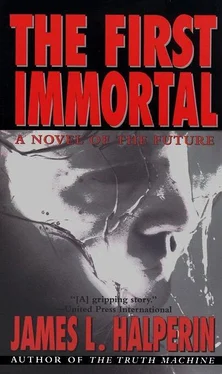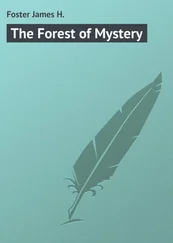Gary had always worked hard, of course, yet his career had never flourished. Marge once speculated that Gary—like Ben, a gastroenterologist—had only entered the field to placate his father—he might have been temperamentally unsuited for medicine.
Ben still believed he’d given his son every opportunity. At Marge’s urging, he’d actually taken Gary into the practice as a partner. Gary had been thrilled at the opportunity and tried to make it work. Technically speaking, Gary was a good-enough doctor, but never had what it took to succeed.
Ben had sat his son down and tried to discuss the matter.
“You get too emotionally involved with your cases; your objectivity is suspect,” he’d told Gary. “Worse yet, your appointments run late because you spend too much time with each patient. Keeping patients waiting is disrespectful.”
“They don’t seem to mind.”
“But I do. By God, we’re doctors. We can’t abide sloppiness. We have our reputation to think about.”
“You mean your reputation. I can’t run my practice like a factory.”
“Are you saying I do?”
Gary backed off. “No. I just mean our styles are different. You’re a great doctor, Dad.”
“Damn right I am.”
Gary was his son , Ben now reminded himself—again. What the hell was wrong with him? Then he rationalized that maybe the fault wasn’t so much his own as Gary’s. After all, a parent could not make a child become responsible and effective. A father could only set an example and hope his children would follow. This all sounded fine to Ben, except for one minor problem: He didn’t believe a word of it.
After about an hour the pain subsided. Ben fell asleep from nervous exhaustion.
Two hours later the flight attendant tapped his shoulder. “Wake up, sir. We’ve arrived.”
In the terminal, he picked up his rental car and a map. The teenage girl at the counter told him that he looked like her father.
“I wish I was your father,” he answered with a wink, which got her to grin.
But driving to the funeral home, the new sun-dazzled surroundings barely registered. His mind sought only Gary.
Three years ago, when Marge died, the real problems began. Gary had started to drink. Within six weeks he’d been arrested for cocaine possession. Minerva, his wife of six years, left him. He’d abandoned his medical practice, his license was suspended, and he’d gone through a series of decreasingly productive jobs. Finally, and perhaps mercifully, he’d quit working entirely. For the next two years Gary had been in and out of AA and rehabs. Even more disturbing to Ben, about eight months ago Gary had stopped asking for money, their only certain connection; they hadn’t seen each other since. Ben hated to think how his son might be supporting himself; probably dealing drugs or burglarizing homes.
He worried that the next place he saw Gary might be the visitors’ section of a penitentiary.
Through the left side of his windshield Ben noticed a medium-sized one-story building with a tiny sign: THE PHOENIX LIFE EXTENSION FOUNDATION. He’d never heard of it before, although he always tried to read up on organizations that claimed to promote longevity. As a doctor, he would rationalize, he needed to learn about the latest theories.
So far, nearly every such claim had been exaggerated; many were outright frauds.
Was this a research foundation on longevity? Maybe they tested anti-aging hormones on lab rats, or offered lifestyle modification programs to people. Or were they one of those bullshit religious—or cryonics—cults?
Ben remembered his discussion about cryonics with Epstein back in 1971, but hadn’t heard much about it since. Apparently the idea had never really caught on.
He did recall reading about one cryonics facility in California. The article noted that about a dozen people had paid between $8,000 and $24,000 each to have themselves frozen after death in hope of being revived, cured, and restored to youth decades or even centuries later. It was eventually discovered that the owner had neglected the bodies, allowing them to thaw and rot. There remained some question as to whether the fraud was preplanned or forced by financial circumstance.
Ben hoped this place wasn’t another one of those cryonics scam outfits, and made a mental note to call when he returned to Boston.
He pulled into the parking lot of the Saint Francis Funeral Home on Camelback Road and walked inside, wondering if he would recognize anyone. Maybe even Carl Epstein; Ben hadn’t heard from him for the better part of a year.
Throughout their adult lives, Ben and Mack had exchanged letters, cards, and photographs of their families, and had often spoken by telephone. But he’d never met any of his children or friends, and hadn’t seen Mack or Annie since they’d flown to Boston for Marge’s funeral.
Because the McGuigans were Catholic, Ben had anticipated the open casket. Mack hadn’t changed much—except now he was dead, of course. Ben laughed nervously under his breath.
Then came sorrow and the hint of tears and, less noticeably, perhaps because it was so devastating, the fear… of his own death. The end of things for all time? Although the man had been thirteen years older than he, his strongest impression remained of Mack as the heroic young ensign.
Ben knew there wasn’t supposed to be as much sadness when an old person died. Old people died; that was what they did. Most others barely noticed the demise of a seventy-year-old man in their midst, except maybe when “the deceased” happened to have been famous. Even then it was quite unlike the intense bereavement experienced when a child or young adult met an untimely death. But to other old men and women, all deaths were untimely. When an ordinary seventy-year-old man like Mack passed away, you could be damn sure his surviving contemporaries paid heed to the passage.
Today’s was an elderly crowd with only a smattering of younger folks. The room was nearly full: almost a hundred people, most seated in pews, while perhaps a dozen filed past the casket. Some mourners knelt in front of it for a minute or so; a few genuflected somberly, as Ben waited in line with these kindred others to voice his farewell.
He saw Mack’s widow dressed in black, seated with family in a special row off to the side. Annie looked at him vacantly. She appeared frail and dazed; he wasn’t sure whether she’d recognized him at all. Her expression reminded him of Alice’s grief and confusion following his father’s death. As he waited, he tried to reconstruct the message his mother had imparted: Take it from someone who’s been there; the best tribute you can grant Mack is never to give up on your own life. He hoped to give comfort, too, but realized such heartache was impossible to soothe; Annie would never be the same. She’d lost a piece of herself, and humans did not spontaneously regenerate.
Then he looked around, searching for familiar faces. His eyes caught a group in the seventh and eighth rows, fourteen men whose posture and body language suggested a cohesive unit, not unlike a Boy Scout troop at a symphony; even without their uniforms it was no great feat to discern such a group. He had not seen these men in thirty-seven years, yet once he understood they were together, he recognized most of them; he was certain of it. He nodded, and many seemed to return the greeting. As a wave of memories rushed over him, he felt lightheaded again. The room spun and his knees buckled. He collapsed onto the threadbare carpet.
The Horror returns; suddenly it is 1943 again.
Ben finds himself back in that crawl space on the Japanese troop-carrier-turned-POW ship, reliving it all: his inability to move, squashed into a lump, the ceiling chicken wire bearing down on his back. The bodies of his sick and dying shipmates locking him into place. The cries and whimpers, the smell like a fist down his throat. And the dread.
Читать дальше












